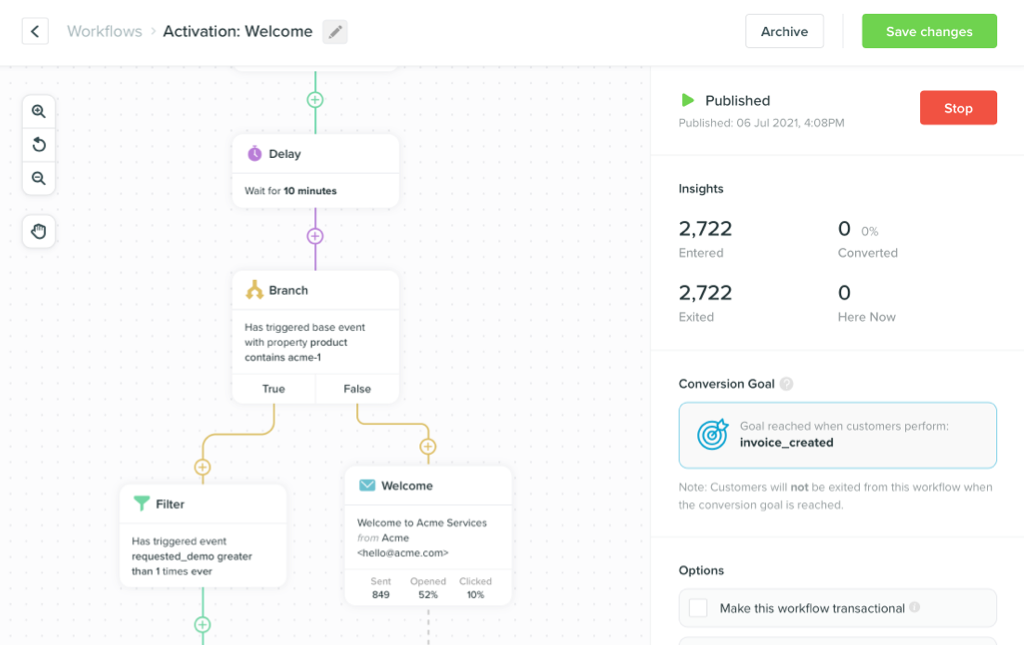- All Posts
- /
- Innovative Referral Marketing: Turning Customers into Brand Advocates
Innovative Referral Marketing: Turning Customers into Brand Advocates
Uncategorized-
Rachel Carson
-
Updated:Posted:
On this page
In today’s digital age, businesses must find innovative ways to rise above the noise and make a lasting impression.
One age-old yet constantly evolving tactic many successful companies employ is referral marketing. This method turns the spotlight on loyal customers, allowing them to amplify brand visibility and foster trust in the community. So, why is referral marketing making such a significant mark in today’s business landscape?
Understanding the Power of Referral Marketing Strategies
According to a study, a significant 92 percent of consumers place their trust in referrals from individuals they are acquainted with. This statistic underscores the fact that such referrals constitute the most reliable and trusted mode of advertising.
But the benefits don’t just stop at trust. Compared to non-referred customers, those brought in through referrals boast a 37 percent higher retention rate and a 16 percent greater lifetime value. Such figures spotlight the long-term value these customers bring.
The importance of referral marketing is underscored by the fact that 65 percent of new business opportunities spring from recommendations, showcasing it as an unparalleled lead generation source.
Furthermore, referrals play an invaluable role for smaller businesses, with 82 percent citing referrals as their principal source of new business. As companies constantly aim to increase customer engagement and loyalty, the statistics provide a beacon of hope.
A cherry on top is that referred customers don’t just come in; they convert. They do so at a 30 percent higher rate than leads from other channels. It’s no surprise that consumers are four times more likely to engage with a business if nudged by a friend.
Not only does this mean more sales, but it’s also a testament to the quality of these sales, as referred customers can bolster profit margins by up to 25 percent.
When Referrals Work and When They Don’t
Trust is the cornerstone of every referral. However, just because a strategy has merits does not make it foolproof. Sometimes, referrals can go awry, and being mindful of these situations is essential.
A potential pitfall of referrals is when they are based more on personal biases than the actual merit or suitability of the candidate. This can lead to resentment among other employees or customers, potentially damaging the trust the business has worked hard to establish. An example would be when a company prioritises a referral due to familial connections rather than their fit for the role.
Another challenge arises when the referred individual isn’t adequately prepped for the opportunity. This can result in wasted resources and a mismatch of expectations. When a person is introduced to a company or service without a complete understanding or genuine interest in its details, it can negatively impact the reputation of the individual who provided the referral.
Cultural alignment is a subtle yet significant component of successful referrals. A referral must resonate with the company’s culture or values to avoid friction, affecting the overall harmony and productivity of the workplace.
Lastly, the importance of recognising and rewarding those who make successful referrals cannot be stressed enough. If their efforts go unnoticed, it can demotivate them from causing further referrals, thereby depriving the business of potential opportunities.
Assessing the Suitability of Referral Marketing for Your Business
Before diving headfirst into referral marketing, businesses need to introspect and analyse. This involves examining current customer demographics, understanding their purchasing behaviour, and gauging their overall satisfaction. Such insights help determine whether the existing clientele has the potential to become brand ambassadors.
Additionally, businesses must determine if their offerings naturally incite customers to make referrals based on their uniqueness and value proposition in the market.
Key Factors Affecting Referral Success
One of the fundamental determinants of referral success revolves around aligning incentives for the referrer and the referee. Ensuring the rewards are compelling enough to motivate both parties is imperative. Additionally, making a referral should be as seamless as possible.
When friends, family, or colleagues are referred, the process should be transparent, straightforward, and easy to grasp. Businesses can simplify this process by integrating platforms or tools for referral purposes, eliminating any hurdles or ambiguities that might otherwise deter potential referrers.
A smoother referral experience invariably increases the likelihood of customers actively advocating for the brand. Beyond the mechanics, the bedrock of any successful referral campaign is trust. It’s crucial to underscore the pivotal role that trust, bolstered by robust customer relationships, propels a referral marketing initiative to success.
Creative Referral Marketing Strategies That Resonate
In the ever-evolving marketing world, it’s crucial to tap into inventive strategies to stay ahead. Instead of solely focusing on monetary rewards, businesses can think outside the box. Offering unique rewards, exclusive experiences, or even special access can give a fresh spin to the referral process.
Another creative approach is gamifying referrals. By turning the process into an engaging competition or leveraging the power of social media, businesses can amplify the reach and impact of their referral campaigns.
Collaboration is another avenue, with brands aligning with others with a similar ethos. This mutual partnership facilitates growth and delivers a rich, combined value proposition to the customer base.
Central to these strategies is fostering a community around the brand. When customers identify with a community, their inclination to refer friends and family naturally increases.
Pre-launch access to new products or exclusive services can be a compelling incentive. Additionally, the subtle art of email marketing can be ingeniously deployed. Adding a referral link in a ‘thank you’ email or a strategically placed banner in a company newsletter can significantly boost referrals.
For a clearer perspective, consider the different sectors. E-commerce businesses that sell products or services online often benefit from offering discounts or complimentary items to both the referring customer and the new signee.
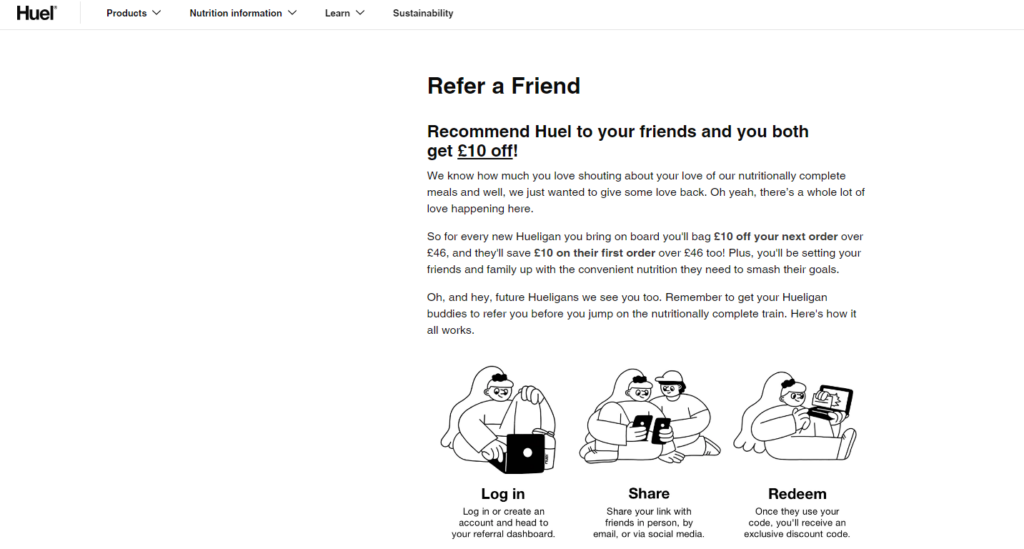 Take the case of
Huel, a
nutrition-centric company. They give a £10 off coupon to the
existing customer and the newcomer who uses a referral link.
This adds value and simplifies email or social media sharing,
enhancing Huel’s customer loyalty and acquisition.
Take the case of
Huel, a
nutrition-centric company. They give a £10 off coupon to the
existing customer and the newcomer who uses a referral link.
This adds value and simplifies email or social media sharing,
enhancing Huel’s customer loyalty and acquisition.
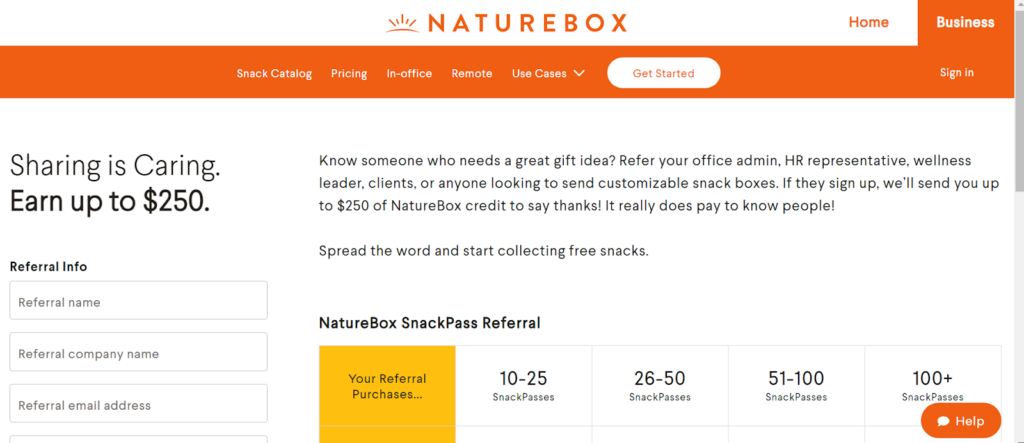 In the B2B sector, where businesses cater to other businesses,
cash rewards or commissions for both parties involved are a
common tactic. An illustrative example here would be
NatureBox, a health-focused subscription service.
In the B2B sector, where businesses cater to other businesses,
cash rewards or commissions for both parties involved are a
common tactic. An illustrative example here would be
NatureBox, a health-focused subscription service.
Their strategy rewards the referrer and the referee with a US$20 in-store credit upon successful sign-up for a paid membership plan. Their promotion channels include emails, social media, and dedicated referral pages.
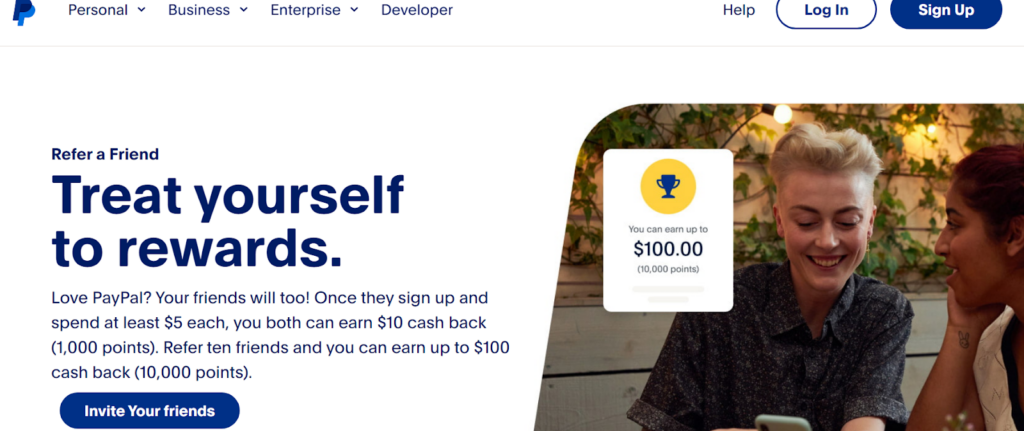
B2C businesses directly target consumers, and their referral strategies commonly offer free trials or subscriptions. An example is PayPal, which targets consumers directly with its offerings. Using an effective method, PayPal rewards the referrer and referee with US$10 each when a purchase is made within a set timeframe. They ensure their program achieves broad outreach Through emails, in-app notifications, and their dedicated referral platform.
Lastly, in the SaaS sector, which stands for Software as a
Service, companies typically offer software on a subscription
basis. Many of these firms adopt strategies that award points or
credits, which can be redeemed for advanced features or
upgrades.
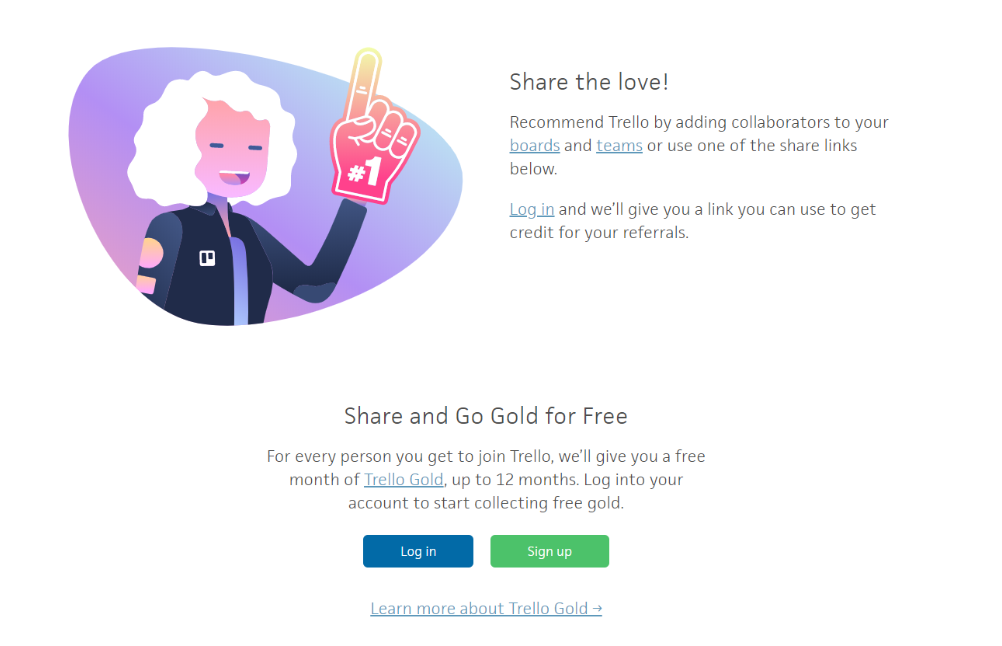
A good example is Trello, a project management tool that facilitates task organisation and team collaboration. When someone refers a new user to Trello, both parties receive a free month of Trello Gold. This premium version unlocks various advanced features, from custom backgrounds and stickers to enhanced attachments. What’s more, for those passionate about Trello, there’s the potential to earn up to a year of Trello Gold simply by introducing more people to the platform.
The Significance of KPIs in Referral Programs
The heart of any successful referral program is its ability to produce measurable results that foster growth and customer retention. This is where KPIs, or key performance indicators, become indispensable. These quantitative metrics shed light on a business’s performance to its objectives. Within the context of referrals, specific KPIs such as NPS (Net Promoter Score), customer satisfaction, retention, and customer lifetime value, among others, are paramount.
For instance, NPS is a barometer of customer loyalty, indicating the probability of customers acting as brand evangelists. The higher the score, the greater the satisfaction and the likelihood of referrals. Similarly, assessing customer satisfaction through methods like surveys and reviews provides insights into the effectiveness of a product or service, directly influencing loyalty and repeat business.
On the other hand, metrics like customer retention spotlight a company’s success in maintaining its existing user base and understanding the long-term value these users bring. The customer lifetime value measures the cumulative revenue a business anticipates from a single customer, guiding the formulation of referral incentives.
Lastly, the referral and conversion rates are pivotal, revealing the referral program’s potency in attracting and converting leads. Businesses can refine their strategies by monitoring these KPIs, ensuring their referral programs are effective and optimised for maximal impact.
Success Stories of Referral Marketing in the Enterprise B2B Space
Certain narratives stand out within the broad marketing landscape, serving as inspirational models of what’s achievable. The enterprise B2B space, characterized by its complex dynamics, has produced some of the most iconic tales in referral marketing.
Dropbox
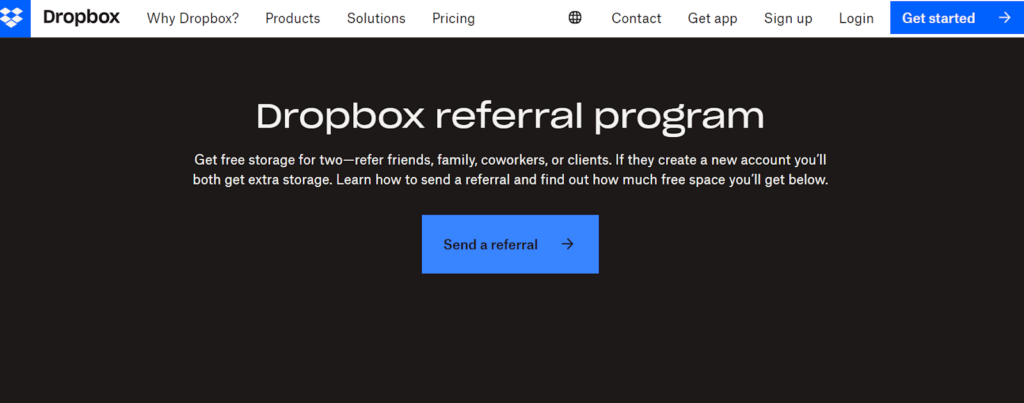
Consider Dropbox, for instance. For every friend referred by a holder of a Dropbox Plus, Family, or Professional account, the referrer was granted an additional 1 GB of space. Using diverse sharing mediums, from social media to emails and messaging platforms, Dropbox exploded in user growth, boasting 4 million users in just 15 months, marking an astonishing 3900% growth.
Blackbaud
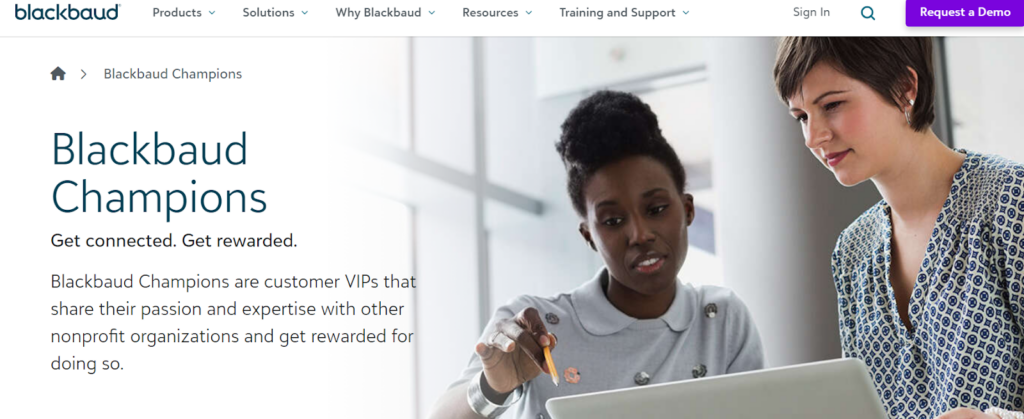
Blackbaud’s narrative is equally compelling. Their referral program, christened ‘Blackbaud Champions’, transformed existing customers into ardent brand ambassadors. These champions shared their positive experiences with potential leads, making the referral process organic and genuine.
By 2022, Blackbaud observed a 14% surge in revenue, with recurring revenue jumping by 11.1% from the previous year. This upswing in performance, at least in part, speaks to the effectiveness of its customer advocacy endeavours.
Airtable
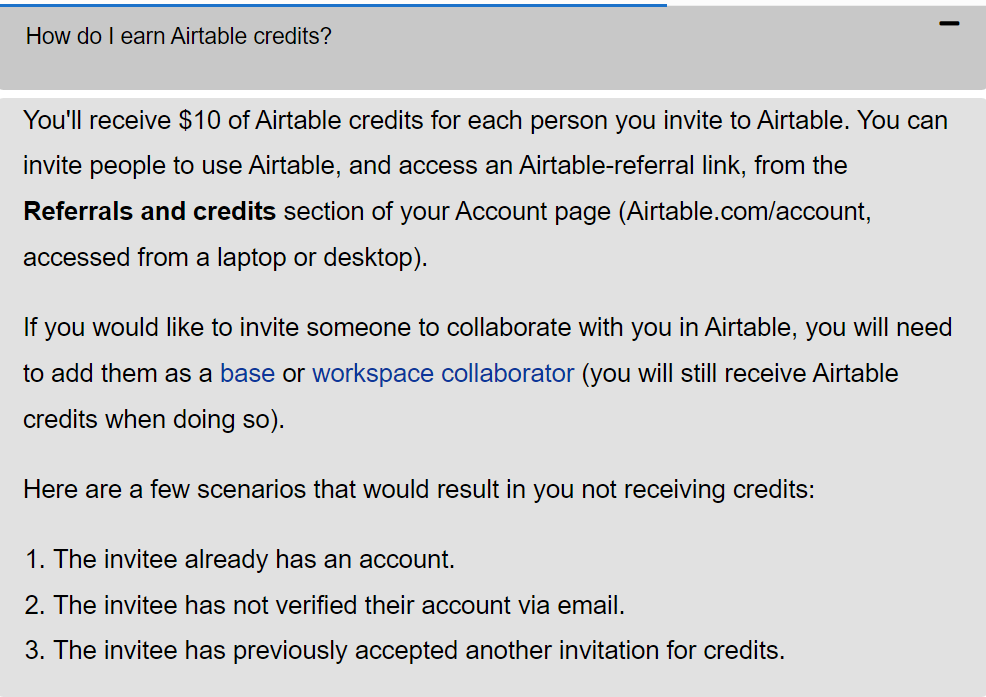
Lastly, Airtable’s approach is worth noting. For each successful referral, users were credited with $10, a simple yet enticing proposition. This initiative amplified their user base and cultivated user satisfaction and loyalty, evident from the positive reviews and testimonials they received. Such stories underscore the profound impact well-orchestrated referral programs can have in the enterprise B2B domain.
Building a Strong Referral Community
Behind every successful referral program lies a thriving community of brand advocates. These individuals don’t just use a product or service but believe in it. By fostering this community, businesses ensure steady referrals and build lasting relationships with loyal customers.
When harnessed to its full potential, referral marketing is a game-changer. Businesses can build an army of brand advocates by integrating trust, customer satisfaction, and innovative strategies.
In doing so, they don’t merely acquire new customers; they weave a narrative of trust and community.

